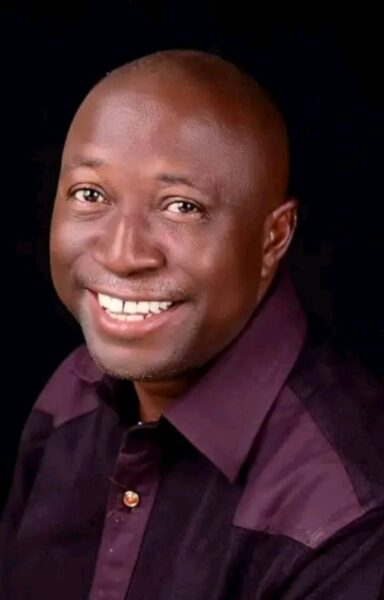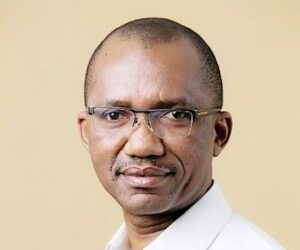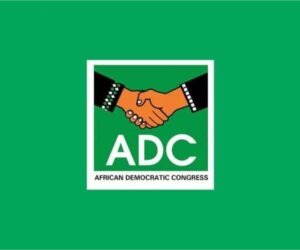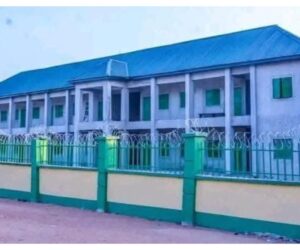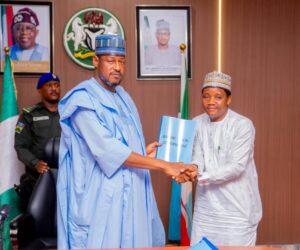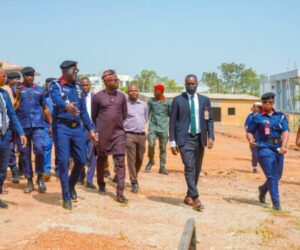One of the leading Presidential aspirants in the 2023 general elections in Nigeria had a blue print on that, if he had won the election would have led to the total privatization and commercialization of the Nigerian Public University System.
The idea to privatize and commercialize the public university system, among many other things was aimed at curbing, if not the total elimination of protracted strikes by the Academic Staff Union of Universities, ASUU, which has paralyzed the University System in Nigeria.
In addition, the idea was firstly, some of basic requirements of neo liberal economics to reform the public university system as well as the idea reflects the general thinking and mindset of the Nigerian ruling political class towards the public university system in Nigeria.
According to this kind of perspective, strikes in public universities has become unfashionable and it is the responsibility of university governing councils, not the state, to negotiate conditions of wages and salaries of academic staff as well as the general development of the University System.
While Neo liberalism has continued to shape and define the public university system in Nigeria through a deliberate withdrawal of government spending in the sector, in the Western Capitalist Nations of Europe and America, states and governments invest heavily and fund their public universities.
The West accommodates strikes by the University academia but turn around to frown at labor strikes in Nigeria.
For nearly fourthy years, since the era of General Sani Abacha in the 1990s, Nigerian public universities has been reduced into a theatre of strikes that has made universities in Nigeria a laughing stock and spectacle of the global community.
Under General Sani Abacha, ASUU embarked on a protracted strike action for nearly six months that not only paralyzed the University System but had far reaching disruptions on the academic calendar and the quality of the University System in Nigeria. General Abacha, in his dictatorial style, ordered the sacking of all University academic staff of public universities. He further decreed that the governing councils of universities employ new academic staff to replace the sacked ones.
Furthermore, the management of public universities were directed to fish out and isolate recalcitrant and rebellious academia who were held suspicious for the mobilization of the six months strike action.The military directive pitched management of universities as against the academic staff, a development that had long effects in the polarization and balkanization of the University System in Nigeria.
During the era of the democratic dispensation of President Olusegun Obasanjo, strikes by public universities in Nigeria withnesed the collapse of academic activities for several months. In his usual vulgular and raw style, President Obasanjo lambasted ASUU as a Union of ungentle men and sexual debauchery, something that ASUU had to publish the sexual adventures of the former president to prove his incontinence and lack of selfcontrol.The Academic Staff Union of Universities pulled out of the strike with a deal that for the first time in the labor history of public universities in Nigeria raised salaries and wages for the academia to reflect a near real and living wage.
In addition, the state in Nigeria established institutions such as the Tertiary Education Tax Fund for the finding of the infrastructural development of Universities alongside with other major interventions such as NEEDS. These finding agencies represented some of the real gains of the ASUU Struggle and marked a beginning of state funding and intervention in the development of public universities in Nigeria. The President Good luck Jonathan administration, an offshoot of the President Musa Yar Adua administration witnessed more agitations from ASUU that resulted into the negotiation of the 2009 agreement between the Union and the Federal Government of Nigeria. President Jonathan desired to seal the agreement with a Presidential Dinner which the Union declined, some kind of diplomatic blunder and tactical mistake that the Union did.
A Presidential dinner could had gone a long way to seal the 2009 Agreement but above all, would had provided President Jonathan, a platform and opportunity to plough back into his constituency, the tertiary education system.
One of the peaks of the bitter labor struggle that left scars on the Union was the ASUU strike under President Mohammedu Buhari which lasted for over eight months in 2022.
The strike came at heels of a global and national lock down following the Western Medical Imperialism of COVID-19. The national ruling political class on one hand, adopted an arm twisting strategy that divided ASUU into two parallel and opposing Unions and on the other hand, used the weaponization of NO WORK, NO PAY policy to break the resolve of Union members who were hungry and helpless in the face of non-salary payments for the strike period. Since 1995, the Nigerian Government and State has been indifferent to the yearnings and demands of ASUU such as, improvement of emoluments and salaries, increased investment in public universities and education, in line with best global practice, the 3autonomy of universities, implementation of reports of Visitation Panels, democratization of leadership recruitment, Student Welfarism, etc.
These issues were encapsulated and captured in the miles stone agreement of 2009 under President Good luck Jonathan. Since 2009, The ASUU – Federal Government Agreement has been subjected to a process of renegotiation and review by succeeding administration and governments in Nigeria. Where Do We Go From Here in the words of the Nigerian Statesman and Legend, Paul Unongo.
There are few important question posers here, looking at the protracted history of the ASUU, can we say that the ruling political class in Nigeria has value in the public university system or of what value is the public university system to the ruling political class in Nigeria, do universities, particularly the academic class, a basic determinant of who gets power and what in Nigeria, is there a power structure that the Union is in total control, that can shape and define the outcome of the power struggle in NigeriaAbove all, can the Union prevent or stop the ruling political class of Nigeria in the implementation of some of the Neo liberal economic reforms that has unleashed inequality, social discrimination and poverty on the Nigerian people.
Under the yoke of Neo liberalism, the idea that the common man pays dearly for being made by God through an obnoxious tax regime and subsidy removal, Nigeria is fast becoming a failed State. This has far reaching impact on all strata of society, not just the educational system.
What is requires to fix Nigeria is beyond an ASUU Struggle that has so devalued and battered the public university system in Nigeria.
According to Times Higher Education, Universities in Nigeria are ranked the lowest on the top one hundred in Africa. University Lectures are far below the average African minimum in the payment of salaries and wages.
Statistics from the National Diaspora Commission shows that Nigeria loses billions of dollars through a capital flight of Nigerians schooling in Universities abroad. The collapse of the public university system in Nigeria has triggered one of the worse drain or human capital flight in recent years.Nigeria is fast loosing what the West is fast gaining.
It is obvious and certain that concern of the ruling political class of Nigeria does not lie in the development of the public university system in line with best global practices.
The Nigerian University Academia does not in any way define or shape the power dynamics and struggle of Nigeria, unlike the military, judiciary, thugs and hoodlums who dictates who gets power and how.
There is no power structure the academia in Nigeria wield control over like their counterparts in Germany where every University Professor is part of the board of advisersto the national government or in the United States of America and Europe where University Professors are the stewards and custodians of research funds and investment that drives development in both public and private sectors.In the West, the synergy between the private sector and University provides opportunities of research and development that enriches the academia and makes them part of the power structure that shapes and defines politics and development.
Above all, what is worrisome is the kind of monumental fraud and mismanagement of resources by Universities Management in Nigeria as often exposed and revealed by frequent reports of visitation panels.
The worse nightmare of the University System in Nigeria perhaps is not even low or poor funding but the untold story of the monumental decay and fraud orchestrated by the management of universities in partnership with their collieries at the Ministry of Education and political ruling class.
The reports of several Visitation Panels has revealed cankerworms as to the state of the development of public universities. It appears that while the struggles of the Union, over the decade has paid off with a capital intervention in our public universities, the management of public universities has been the major swamp that has swallowed and sinked some of the great and best national intervention, through TetFund and NEEDS, in the funding of public Universities in Nigeria.It is an imperative for the Government of Nigeria under President Bola Ahmed Tinubu, to embark on sweeping and fundamental reforms that should once and for all fix the University System of the country.
There is need for the overhauling of the entire University Architecture both from within and outside. There is the urgent need to decide on how best to reposition our public universities to be global competitive in both infrastructural development, content, emoluments, research etc.
Doing so will achieve a number of things, arrest capital and human flight, but, more importantly, achieve a synergy between what is produced by universities and its relevance both to the public and private sectors.
There is no society or nation that will ignore and isolate her University System for decades, if such Universities have a direct bearing on the development and transformation of that nation. What is the direct contribution of our universities in terms of research and community development on the growth of the private and public sectors?
A nation which cannot see or evaluate the impact of a shutdown of universities on the economy and development, cannot value her academia and students.
There is something terrible amiss of the ruling political class of Nigeria, their mental and philosophical outlook, that, rather , believes in the coercion of ASUU through mass dismissal or NO PAY, No WORK policy, than a prompt attention to the wellbeing of the University System that has been in the doldrums for nearly forty years.
Above all, there is need to integrate the elite corp of the University Intelligentsia, Professors, into the power dynamics and structure of the Nigerian State. Traditional Rulers in Nigeria exercise and display more relevance than the professors of Nigerian Universities. Statistics shows that elected councilors of Local Governments in Nigeria have more societal relevance and grass roots community development.
There is the urgent need to make the professors of public universities in Nigeria as the hub and catalyst of all research institutions, public or private, even the hosting, sourcing, content development of workshops and seminars for the nation’s civil service.
Professor Uji, Wilfred Terlumun
Department of History and International Studies
Federal University of Lafia.

